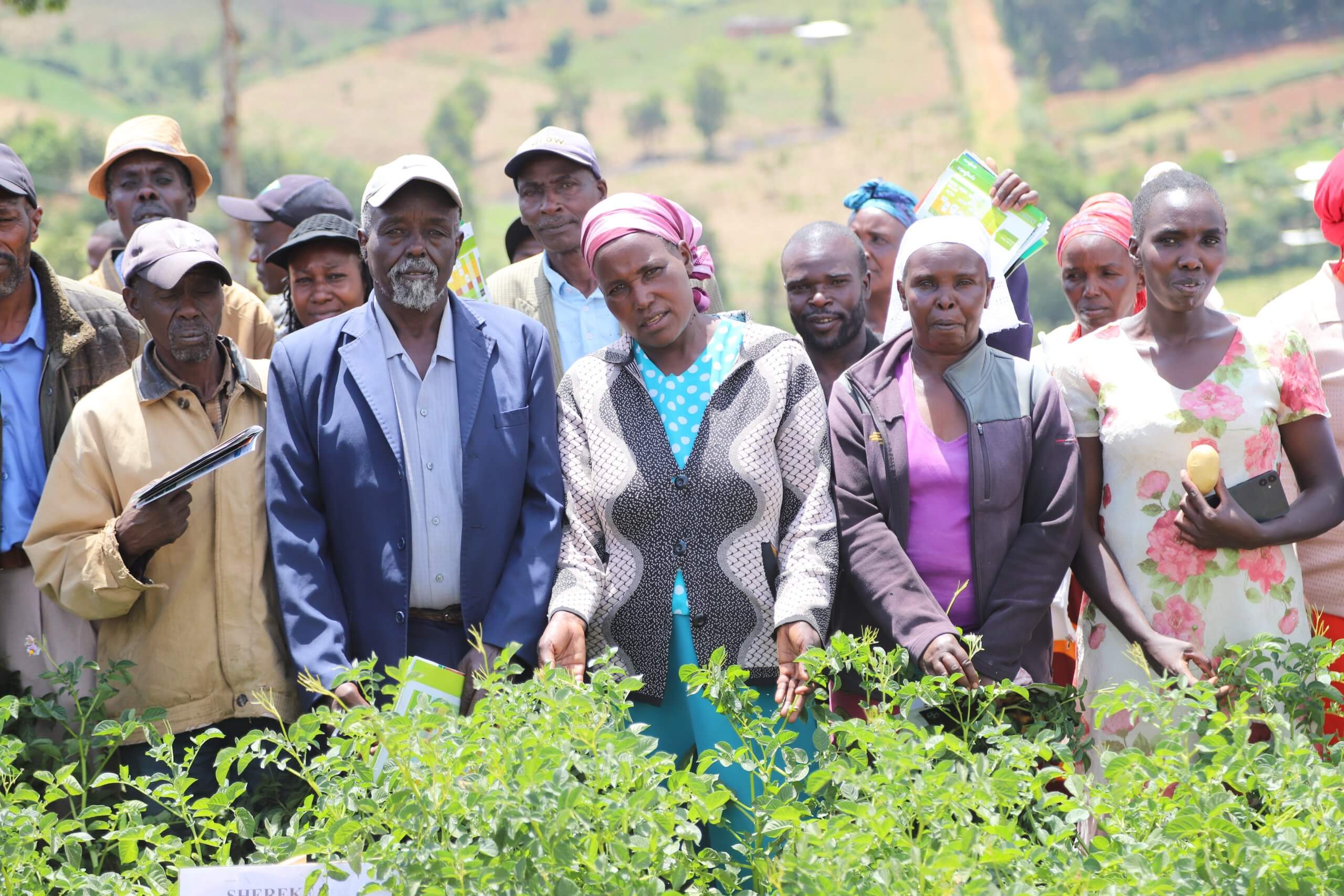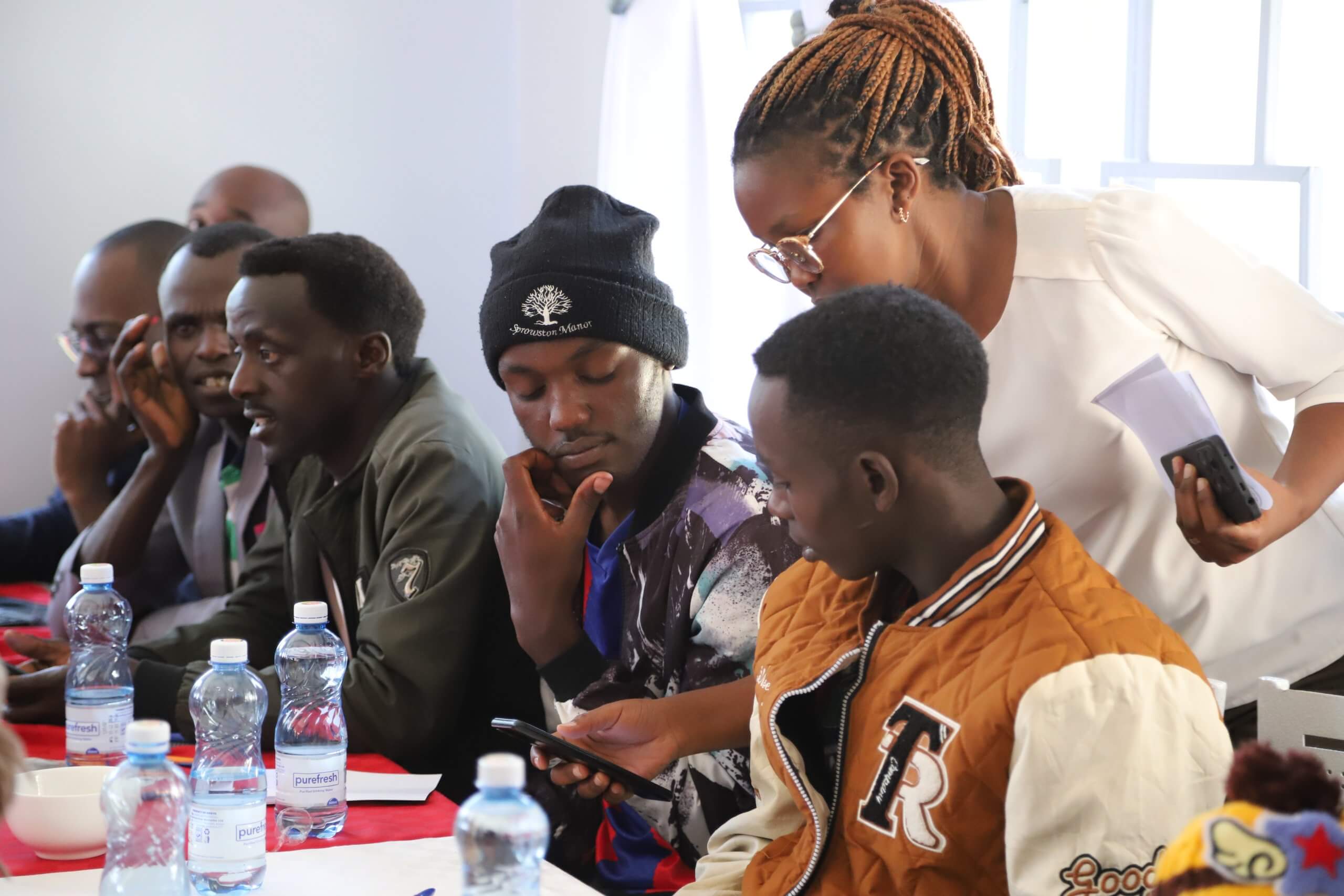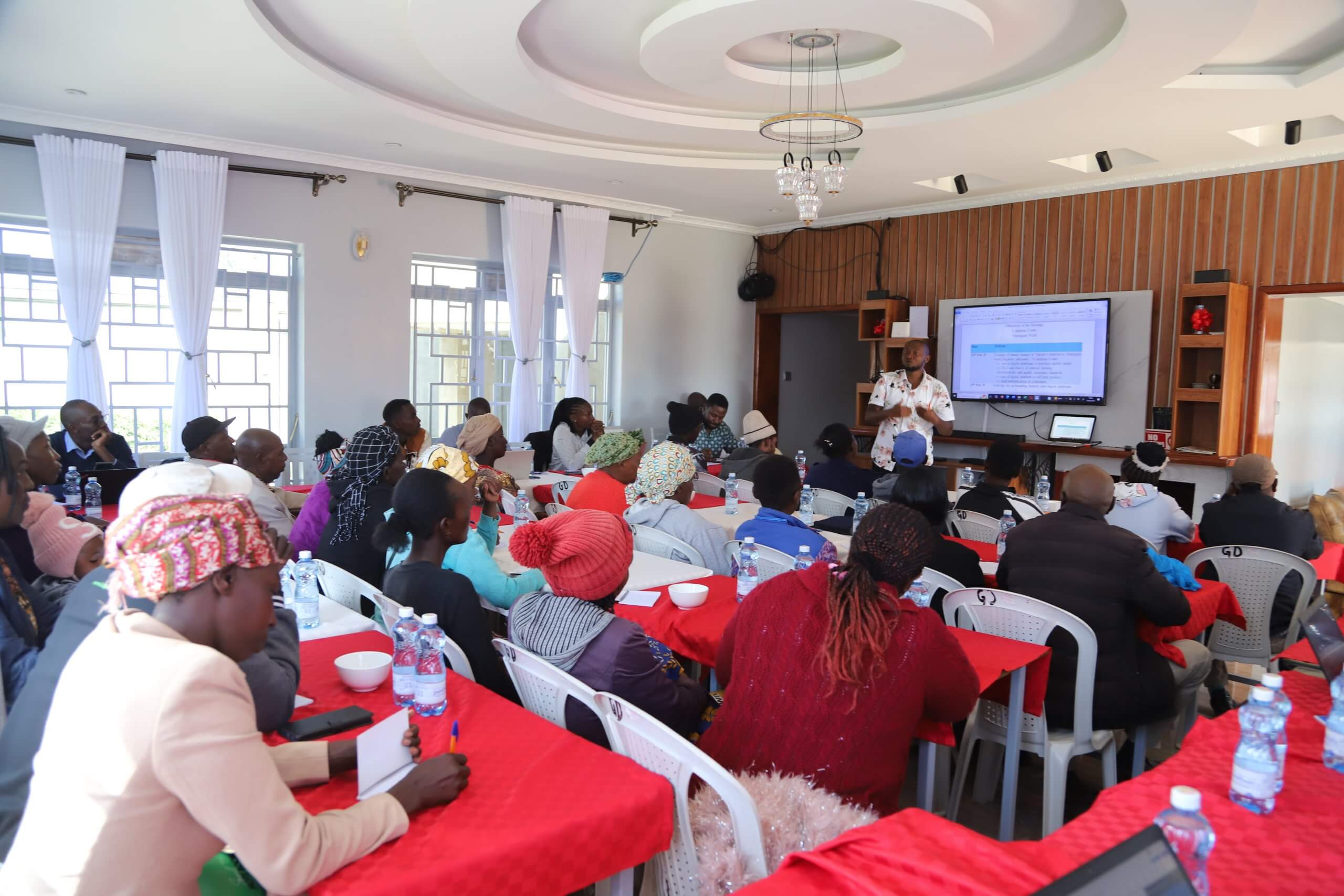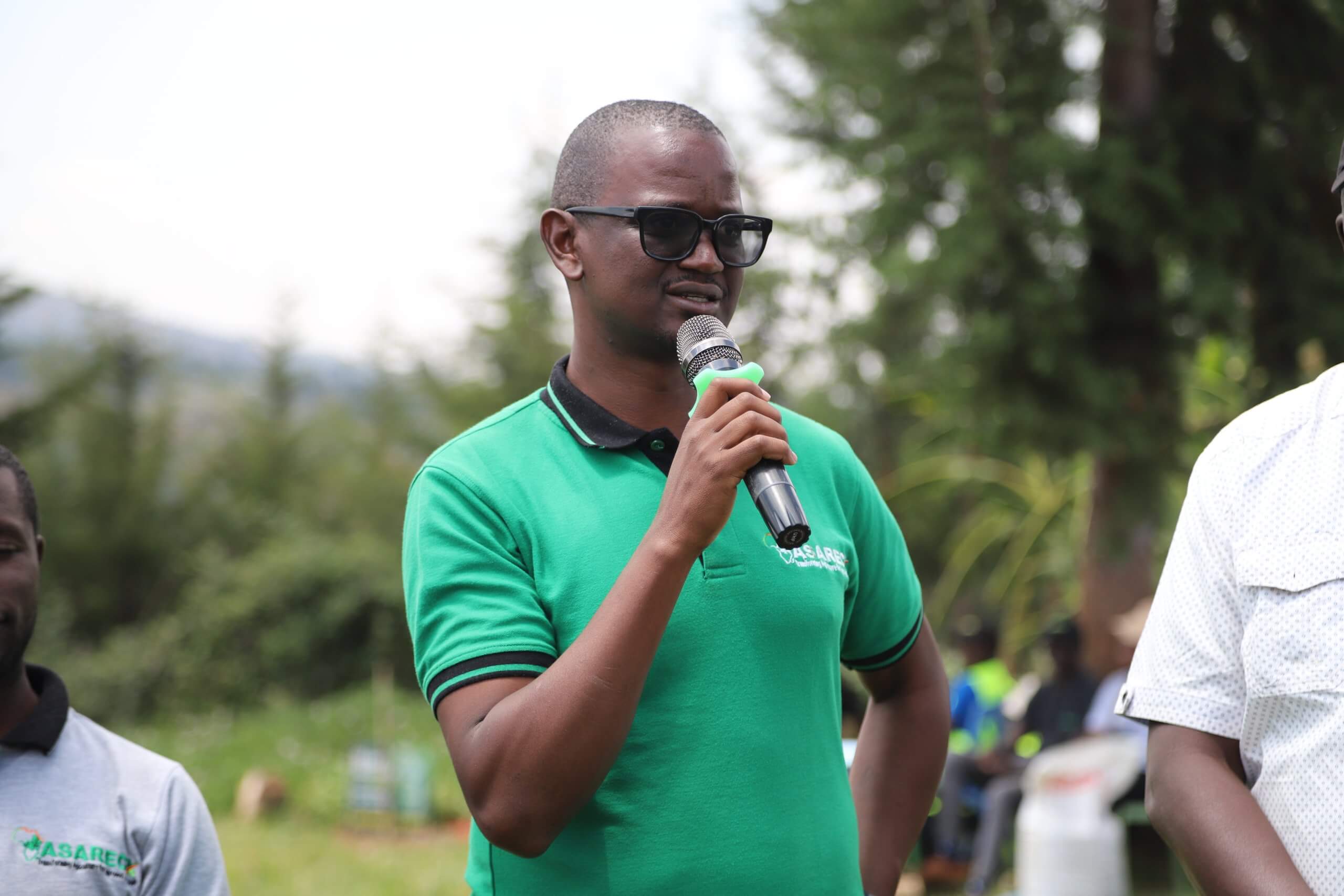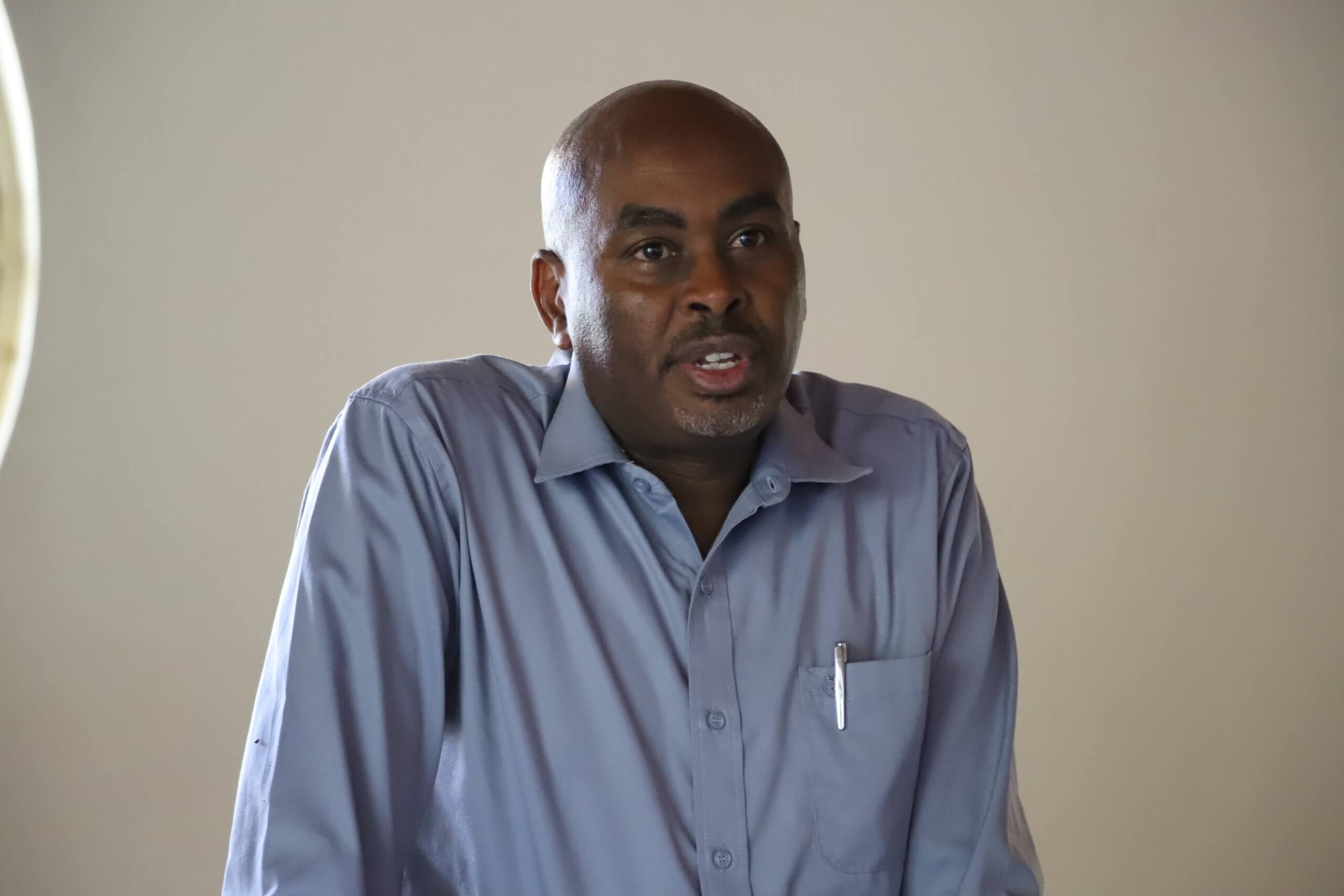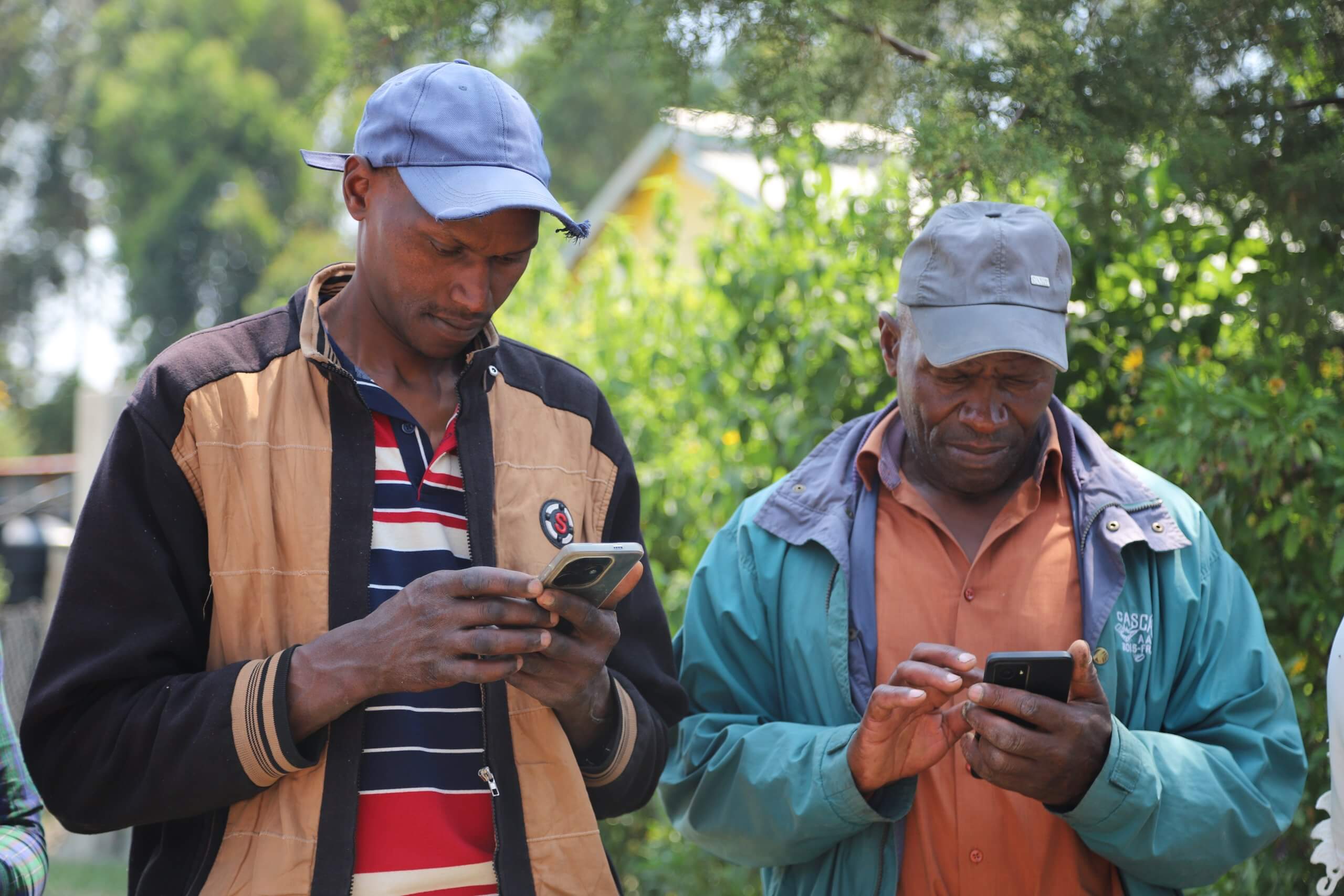ASARECA and partners train Farmers on use of Digital Platforms, Certified Potato Seed, and Climate-Smart Innovations for Market Linkages in Kenya
BY GENEVIEVE APIO
NYANDARUA & NUKURU, KENYA – MARCH 2, 2025 – In a transformative move to enhance market access and climate resilience among smallholder farmers, ASARECA, in collaboration with key partners, the National Potato Council of Kenya (NPCK), Egerton University, the Kenya Agricultural and Livestock Research Organization (KALRO), and agriBORA, have successfully trained farmers in digital literacy and climate-smart agricultural practices in Nyandarua and Nakuru counties, Kenya.
The training, which took place from February 23 to March 2, 2025, was meant to increase farmer adoption of digital platforms, improve access to quality-certified potato seed, and scale innovative agricultural technologies.
This initiative was implemented under three major agricultural research and innovation programs:
The Accelerating Impacts of CGIAR Climate Research for Africa (AICCRA) Project
The training contributes to the AICCRA Project IPI 3.1, which focuses on ensuring that validated climate information services and Climate-Smart Agricultural (CSA) technologies are effectively disseminated and accessible to farmers. Funded by the World Bank, AICCRA strengthens technical, institutional, and human capacities for scaling climate-smart solutions across Africa.
The Comprehensive Africa Agriculture Development Programme ex-Pillar IV (CAADP-XP4) Programme
The training is also aligned to the CAADP-XP4 Programme Activity 2.1.5 (ii), which promotes digital platforms for market access and agro-advisory services. This project is funded by the European Union (EU) under the DeSIRA initiative and managed by the International Fund for Agricultural Development (IFAD).
The Strengthening Agricultural Knowledge and Innovation Ecosystem for Inclusive Rural Transformation and Livelihoods in Eastern Africa (AIRTEA) project
The training supported Activity 1.3 of the AIRTEA Project, which focuses on developing national digital platforms to connect researchers with end-users and enhance innovation scaling. AIRTEA is supported by the Organization of African, Caribbean, and Pacific States (OACPS) through the ACP Innovation Fund, funded by the EU. It is implemented by the Forum for Agricultural Research in Africa (FARA), ASARECA, and the Eastern Africa Farmers Federation (EAFF).
Participants during the opening session of the digital and climate-smart agriculture training in Nyandarua County, facilitated by ASARECA and partners.
ASARECA committed to innovation
In his opening remarks, Dr. Joshua Okonya, the Program Officer for Technology and Innovation at ASARECA, underscored the importance of the initiative during his opening remarks. He stated:
“The key to transforming agriculture lies in our ability to innovate and adapt. At ASARECA, we aim to empower farmers with the knowledge, tools, and technologies they need to not only survive but thrive in the face of climate change and market challenges.”
Dr. Joshua Okonya, ASARECA Program officer for Technology and Innovation, delivering opening remarks on the role of innovation.
“As the agricultural landscape in Africa continues to evolve, we believe that embracing digital platforms and climate-smart agriculture innovations is essential,” he noted
“By integrating these technologies into farming practices, we can help farmers unlock new opportunities, increase their productivity, and build resilience to the challenges ahead.”
Potato Council stresses impacts arising out of digital innovation
Dr. Wachira Kaguongo, CEO of NPCK, delivering opening remarks during the Elburgon training session.
During an onboarding session for farmers in Elburgon, Njoro, Dr. Wachira Kaguongo, the CEO of the National Potato Council of Kenya (NPCK), underscored the significant impact that digital platforms had in transforming the agricultural landscape. Kaguongo stated,
“Through the use of technology, we helped farmers register, order inputs, and sell their produce through a seamless digital experience.”
Kaguongo highlighted the tremendous growth of the Potato App, which had been instrumental in helping farmers in potato-growing regions access vital services.
“The platform has made significant strides, and we are set to register over 400,000 farmers in the next three years.” He said.
Strategic Partnerships
This initiative was made possible through the strong collaboration of key partners including the National Potato Council of Kenya (NPCK), which led the promotion of Viazi Soko, a digital platform designed to support farmers in accessing quality potato seed, contract farming opportunities, and competitive markets; Egerton University, which provided training on Good Agricultural Practices (GAPs), emphasizing the importance of climate resilience, soil health, and sustainable potato production; Agricultural and Livestock Research Organization (KALRO), which played a key role in introducing improved potato varieties and research-backed agronomic practices; and;- agriBORA, which provided training to farmers on how to use digital tools to access weather forecasts, financial services, and real-time market information.
This multi-stakeholder collaboration ensured that farmers not only gained digital literacy skills but also received hands-on training in sustainable potato farming and market access strategies.
Farmers explore the Viazi Soko and agriBORA digital platforms using their smartphones
Unlocking Market Access with Digital Platforms
One of the key outcomes of the training was onboarding farmers onto two transformative digital platforms: Viazi Soko and agriBORA.
Viazi Soko – Connecting Potato Farmers to Profitable Markets
[Viazi Soko] (https://npck.org) is a digital platform developed by NPCK that enables farmers to:
– Access certified seed potatoes and farm inputs
– Sell their produce directly to processors and buyers
– Engage in contract farming with guaranteed prices
– Track potato prices and market trends in real-time
With this platform, smallholder farmers can eliminate middlemen, secure better prices, and improve traceability of their produce.
agriBORA – Smart Farming for Smallholder Farmers
[agriBORA](https://agribora.com) is an agritech platform that provides farmers with:
– Real-time weather forecasts to plan farming activities
– Market price updates to help farmers sell at the best price
– A digital marketplace for buying and selling farm inputs and produce
– Access to financial services, including loans and crop insurance
By adopting Viazi Soko and agriBORA, farmers now have greater control over market access, input procurement, and financial stability.
Hands-on Training in Climate-Smart Agricultural Practices
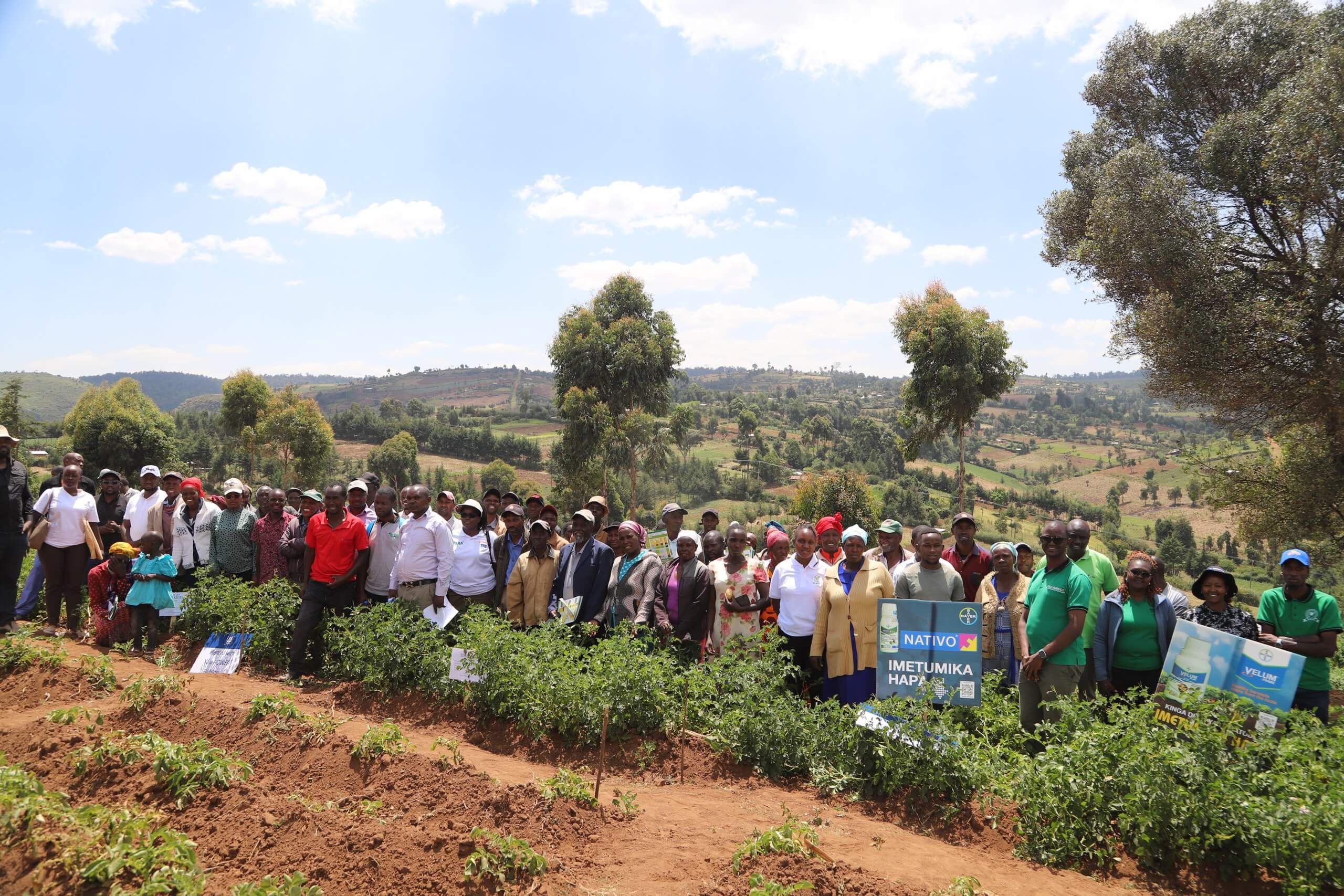 Participants, trainers, and partner representatives from ASARECA, NPCK, Egerton University, KALRO, and agriBORA pose for a group photo after the closing session.
Participants, trainers, and partner representatives from ASARECA, NPCK, Egerton University, KALRO, and agriBORA pose for a group photo after the closing session.
One of the major challenges facing Kenya’s potato farmers is access to quality-certified seed. Many farmers recycle potato seed from previous harvests, leading to declining yields, disease build-up, and reduced market value.
In addition to digital literacy, the training also focused on climate-smart farming techniques to increase farm productivity and sustainability. A field day at a potato demonstration farm organized by the National Potato Council of Kenya in Mauche, Molo County, exposed farmers to good Agricultural Practices (GAPs) for improved seed potato production, soil and water conservation techniques for climate resilience, and Post-harvest handling methods to improve market quality
Farmers were equipped with knowledge on how to handle climate risks, increase their yields, and produce high-quality potatoes for both local and export markets.
It is expected that lead farmers will act as digital champions, cascading their knowledge to onboard more farmers onto Viazi Soko and agriBORA platforms. This is hoped to ensure wider adoption of digital tools, creating a more connected, profitable, and climate-resilient agricultural sector.
Conclusion
The training was a success, demonstrating the power of digital innovation, research-backed agricultural solutions, and strong multi-stakeholder partnerships. This initiative is expected to deliver long-lasting benefits, including increased adoption of digital platforms for market access and input procurement, stronger integration of farmers into contract farming arrangements with processors, improved climate resilience through climate-smart agricultural practices, and strengthened partnerships between farmers, researchers, and agribusiness stakeholders.

